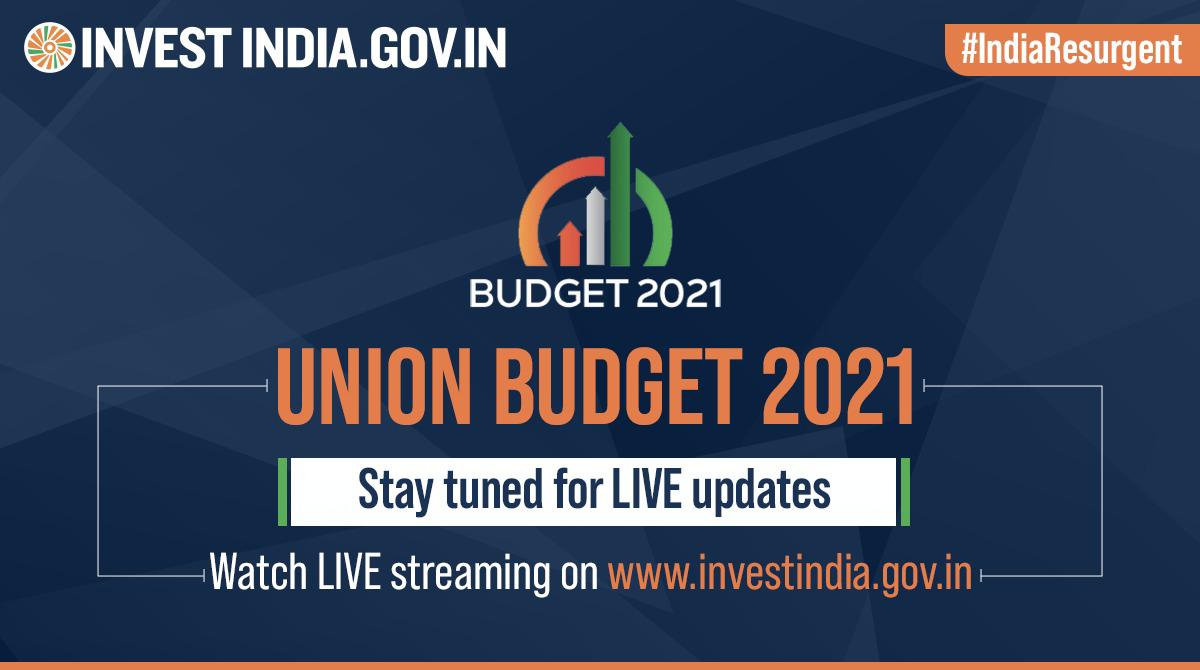In another historic Union Budget, one preceded by stimulus packages in the form of Atma Nirbhar packages and the Pradhan Mantri Gareeb Kalyan Yojna in 2020, Hon’ble Smt Nirmala Sitharaman delivered an action-oriented plan to help lift the Indian economy in her speech. As countries across the globe are struggling to cope with the loss of demand and investments, Indian economy is slowly gaining momentum, and as per the Economic Survey, Indian real GDP is slated to rise at a rate of 11% between 2021-22. Resonating with such projections, the budget today featured announcements on various schemes and proposals, many of which were pivoted towards leveraging and enhancing the consumer spending power of India’s 1.3 billion population, thus, giving impetus to the growth of the retail and e-commerce market.
Among the major announcements made today, a few of the notable ones are mentioned below:
Encouraging Digital Payments
₹1,500 crore earmarked for a proposed scheme to incentivise innovations in digital payment systems.
Implications
India’s m-commerce market is expected to rise to nearly $63 bn by 2023. Innovations in digital payments systems will help secure transactions in the space, and enable offshoots to the e-commerce/m-commerce to grow, thereby, increasing income and generating employment.
Employment Laws and Regulations Reforms
- Social security benefits to be extended to gig and platform workers.
- Women to be allowed to work during night shifts with adequate safety provisions.
Implications
As per a report, over 17 million women were left unemployed in India in April 2020. Measures to allow women to work during night shifts will ensure upward mobility of working women by enhancing available economic opportunities. Extending social benefits will act as hedge against economic deprivations induced by the pandemic
Textiles Reforms
Scheme for Mega Integrated Textile Regions and Apparel Parks (MITRAs) will be rolled out creating world-class infrastructure with plug-n-play facilities; 7 textile parks over 3 years to be created.
Implications
India is a major retail hub with a consumption expenditure that is expected to rise to nearly $6 tn by 2030. Thus, it is being keenly looked upon as an expansion destination by major international retailers. Developing textile infrastructure in tandem with growing retail market will help companies looking to enter India under formats such as Single Brand Retail Trading (SBRT), as they can then look to locally source products to comply with the FDI rules requirement for the same without incurring heavy expenditure on technical textiles.
Boost to Infrastructure
- National monetisation Pipeline of Warehousing (CWC)
- Proposal to increase capital expenditure at INR 5.54 lakh crore, from INR 4.39 lakh crore in 2021. Economic corridors being envisaged with plan to boost road infrastructure.
- National Infrastructure Pipeline (NIP) has now expanded to include 7400 projects, in a thrust to monetize public projects.
- Project to construct over 13,000 kms length of roads have been awarded under the ₹5.35 lakh crore ‘Bharatmala Pariyojana’
Implications
- A boost to infrastructure will lead to a commensurate increase in logistics operations, which are important to retail and e-commerce entities. Digital serviceability ensures functioning of an online marketplace, but a robust physical infrastructure will help companies complete the transaction loop by providing the goods and services to the remotest of places within stipulated timelines.
- Better infrastructure with a focus on exports will help retailers looking at India as a sourcing destination.
Production Linked Incentive (PLI) schemes
Production Linked Incentive (PLI) schemes to create manufacturing hubs across 13 sectors, including textiles, food, electronics and pharmaceuticals, have been announced, with an allocation of ₹1.97 lakh crores over 5 years starting FY 2021-22
Implications
The schemes will help increase local manufacturing output and increase the base of local vendors. Thus, PLI will help make India into a sourcing destination for global players.
Reforms in Startup Ecosystem
- Incorporation of One Person Companies (OPCs)
- Focus on allowing OPCs them to grow without restrictions in paid up capital and turnover.
- Reducing residency limit from 182 days to 120 days for Indian Citizens setting up OPCs.
- Eligibility for claiming tax holidays extended by one year, till 31 March 2022.
- Capital gains exemption for investment in start-ups increased by 1 more year, till 31 March 2022.
Implications
Tax holidays and capital gain exemptions to help infuse liquidity into the startup ecosystem; limited residency limits will help more Non-Residential Indians (NRIs) looking at India to establish presence, bringing in much needed technical expertise and capital.
Change in Customs Duties
- Revoking Anti-Dumping Duty (ADD) and Countervailing Duty (CVD) on certain steel products.
- Reducing duties on copper scrap from 5% to 2.5%.
- Exempting duty on steel scrap for a specified period.
- Reduction in duty on Gold and Silver from 12.5% to 7.5%.
- Reduction of the BCD rates on nylon fibre and yarn to 5%.
Implications
- Removal of Anti-Dumping Duty and Countervailing Duty on steel products and copper scrap will benefit MSMEs.
- Reduction in gold duty will give impetus to its consumption, thus, boosting gems and jewellery retail.
- Reduction in duty on textile raw material will further help scale manufacturing, thus, allowing companies to ensure competitive retail prices.
#AatmanirbharBharatKaBudget #BacktoGrowth #UnionBudget2021








